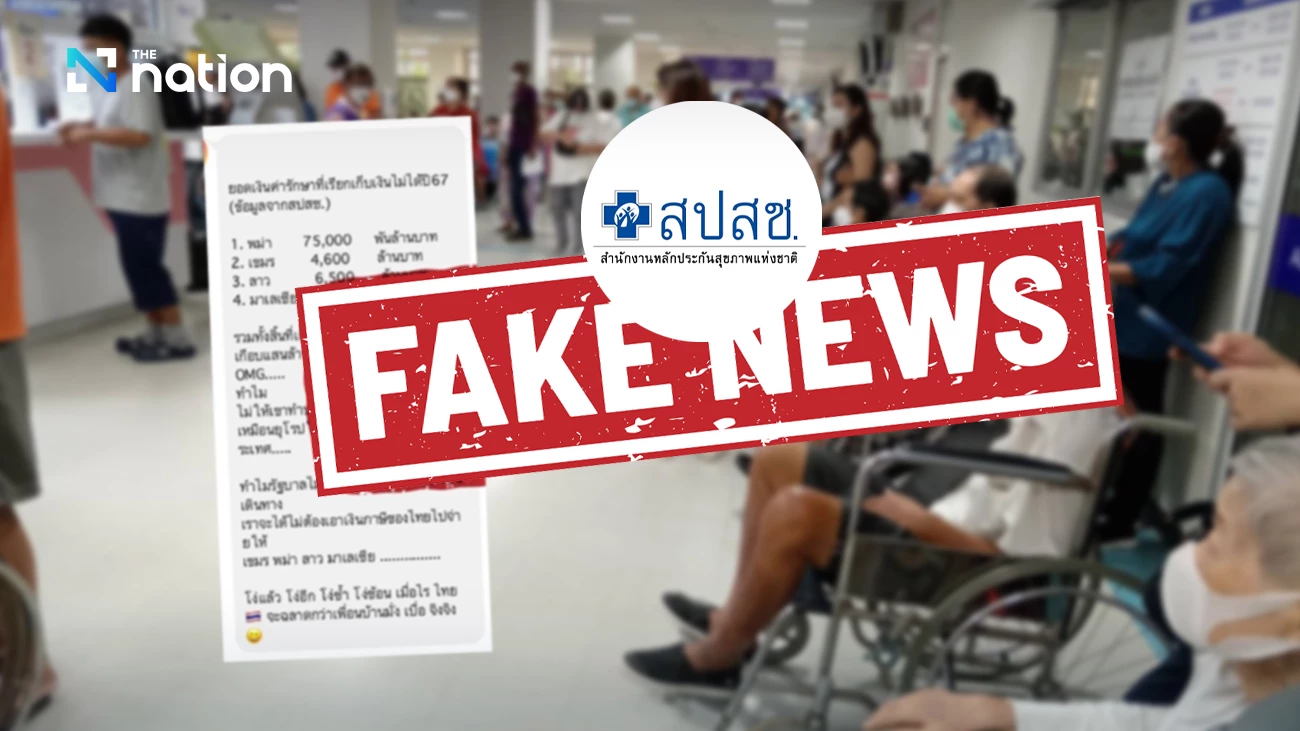War Propaganda and ICC Threats: Thai-Cambodian Border Crisis Deepens

Tensions along the Thai-Cambodian border continue to escalate, marked by diplomatic disputes, allegations of landmine deployment, and a persistent disinformation campaign. Thailand’s Ministry of Foreign Affairs vehemently denied claims circulating on social media, reportedly cited by Cambodia's Minister of Information, that Thailand was planning the assassination of Cambodian leaders Hun Sen and Hun Manet. Nikorndej Balankura, Director-General of the Department of Information and Spokesperson for the Thai Ministry, dismissed these accusations as "entirely unfounded" and "clearly intended to defame Thailand," emphasizing that such false news undermines ongoing diplomatic efforts, particularly during General Border Committee (GBC) discussions.
In a related development, the Royal Thai Army (RTA) is set to lead the ASEAN Interim Observation Team (IOT) to the Thai-Cambodian border to monitor alleged breaches of international law and ceasefire conditions by Cambodian troops. This mission follows earlier visits by international envoys and organizations. ASEAN envoys and representatives from countries that ratified the Ottawa Convention—which bans landmines—visited Si Sa Ket province, where they observed evidence of anti-personnel mines purportedly laid by Cambodian forces and interviewed affected residents. The Thai government anticipates these envoys will report their findings to their respective governments and raise the issue within the international community.
The humanitarian impact of the conflict has also drawn attention. The RTA, in collaboration with the Foreign and Interior Ministries, facilitated a visit by representatives from the International Committee of the Red Cross (ICRC). These representatives assessed the effects of cross-border attacks on civilians in Surin, Si Sa Ket, and Ubon Ratchathani provinces, conducting interviews with local residents. The ICRC will compile a confidential report on their findings for direct submission to both Thailand and Cambodia, reinforcing Thailand's commitment to humanitarian protection mechanisms.
The Ministry of Digital Economy and Society (DES) highlighted the pervasive issue of misinformation, reporting that eight out of the top ten fake news items last week were false reports related to the Thai-Cambodian border conflict. Wethang Puangsup, spokesman for the DES Ministry, noted that border-related stories dominated the list, with the top three fake news items specifically concerning the situation. This prevalence of disinformation further complicates efforts to resolve the conflict peacefully.
Adding to the diplomatic strain, Acting Prime Minister Phumtham Wechayachai addressed the possibility of academics submitting a proposal to sue Cambodian Prime Minister Hun Manet and his father, Hun Sen, as war criminals in the International Criminal Court (ICC). This follows a resolution by the National Security Council (NSC) to file both criminal and civil lawsuits against them in Thai courts for allegedly ordering Cambodian troops to fire at Thai civilians, causing deaths, injuries, and property damage.
Thailand has also accused Cambodia of exploiting humanitarian aid and encroaching on Thai soil at Ban Nong Chan village in Sa Kaeo province. Government spokesman Jirayu Houngsub stated that Ban Nong Chan, initially a temporary shelter for Cambodians fleeing civil war in 1977, was later exploited by Cambodia, which allowed refugees to expand their community on Thai territory instead of returning home. Thailand views the expansion of nearly 200 new homes by descendants of these refugees, who claim the area as Cambodian sovereign land, as a betrayal of hospitality and a provocation. Jirayu explained that Thailand erected razor wire within its boundaries to protect its territory from further encroachment and attacks by Cambodian troops, including landmine deployment, asserting this action did not violate the August 7 GBC agreements.
Despite a 13-point ceasefire agreement signed during the GBC meeting in Malaysia on August 7, provocations, fake news, and intimidation persist. Cambodia continues to pressure Thailand to dismantle the barbed wire fences in the Ban Nong Chan area. Thailand’s Ministry of Foreign Affairs further challenged Cambodia’s narrative, accusing Phnom Penh of a "sustained disinformation campaign" that undermines the peace process. Nikorndej Balankura refuted Cambodia's claims of upholding a bilateral ceasefire, calling their commitment "merely for public relations." He presented a four-point list of alleged ceasefire violations by Cambodia, including laying new landmines, using drones for harassment, inciting their own citizens to protest at the border, and deploying powerful improvised explosive devices (IEDs) on the Thai side of the frontier.
International observers, including a delegation of four US lawmakers, visited Thailand to monitor developments in the region, particularly the Thai-Cambodian border conflict zone. Acting Prime Minister Phumtham Wechayachai held discussions covering Thai-US relations, security, economic issues, and investment, and confirmed raising the issue of Cambodian mine-laying activities with the delegation. Phumtham emphasized the critical need for truth over propaganda to resolve conflicts peacefully, prioritizing the lives of affected people. He acknowledged the involvement of US President Donald Trump, along with observers from the United States, China, and ASEAN military attachés, in addressing the situation, with further talks anticipated on September 10.
You may also like...
Crawford's Terrifying Transformation Fuels Canelo Showdown: Eubank Jr. Lurks

Two of boxing's elite, Canelo Alvarez and Terence Crawford, are set to clash on September 13 to determine the top pound-...
Fever's Caitlin Clark Faces Extended Absence, WNBA Playoff Hopes Dwindle

Indiana Fever star Caitlin Clark's 2025 WNBA season has officially ended due to a right groin sprain, concluding an inju...
007 Frontrunner Shakes Up Casting Race, Declines Iconic Role!

Step into the life of Mike Dickman, a rising British actor making waves in Hollywood, who finds himself unexpectedly ent...
Iconic Sith Lord's Lightsaber Smashes Records at Auction!

Darth Vader's original lightsaber from "Star Wars: The Empire Strikes Back" and "Return of the Jedi" has sold for an unp...
African Music Powerhouses Dominate: Davido, Burna Boy & More Lead AFRIMA 2025 Nominations

The 2025 All Africa Music Awards (AFRIMA) has announced a record-breaking list of nominees, with Nigerian stars Burna Bo...
R&B/Hip-Hop Royalty Rocks NYC: Leon Thomas, GELO & Ravyn Lenae Ignite Billboard's Live Concert

Webster Hall was transformed into a vibrant scene for the Billboard R&B/Hip-Hop LIVE concert on September 5, showcasing ...
Shocking Allegations: Alexander Brothers Case Explodes with Accuser Stories and Lawyer Denials

Luxury real estate moguls Oren, Alon, and Tal Alexander face sex trafficking charges and accusations of rape and sexual ...
Rocker Rumble: Oasis Reunion Plagued by Ticketmaster Legal Battle

Oasis is set for a monumental reunion tour in 2025, with bassist Andy Bell confirming his return and a global schedule o...
